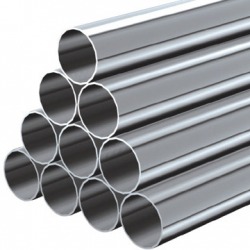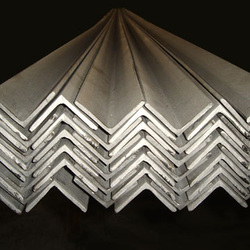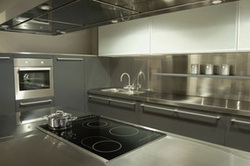Stainless Steel

All types of Stainless Steel have a high resistance to corrosion. This resistance is due to the naturally occurring chromium-rich oxide film formed on the surface of the steel. Although extremely thin, this invisible inert film is tightly adherent to the metal and extremely protective in a wide range of corrosive media, the film is rapidly self repairing in the presence of oxygen, and damaged by abrasion, cutting or machining is quickly repaired. Low alloyed grades resist corrosion in atmospheric conditions; highly alloyed grades can resist corrosion in most acids, alkaline solution and chloride bearing environments, even at elevated temperatures and pressures.
Stainless Steel has become widely used in construction, kitchen, baths, electrical appliances, staircase railing, lift cladding and more. All because of its superior corrosion resistance, cracking resistance and easy of use.
Stainless Steel has become widely used in construction, kitchen, baths, electrical appliances, staircase railing, lift cladding and more. All because of its superior corrosion resistance, cracking resistance and easy of use.
Applications

Stainless steel’s resistance to corrosion and staining, and low maintenance make it an ideal material for many applications. There are over 150 grades of stainless steel, of which fifteen are most commonly used. It is milled into coils, sheets, plates, bars, wire, and tubing to be used in cookware, cutlery, hardware, surgical instruments, major appliances, industrial equipment, automotive and aerospace structural and construction material in large buildings. Storage tanks and tankers used to transport food and drink items are often made of stainless steel, due to its corrosion resistance and antibacterial properties. This also makes it popular in commercial kitchens and food processing plants, because it can be steam-cleaned and sterilized and does not need paint or other surface finishes.
Stainless steel is also used for jewellery and watches with 316L being used for such applications. It can be re-finished by any jeweller and will not oxidise or turn black.
Hygienic Properties

The ease of cleaning Stainless Steel makes it first choice for Hospitals, Kitchens, Food and Pharmaceuticals. Stainless Steel is a generic term for a family of corrosion resistant alloy steels containing 10.5% or more chromium.